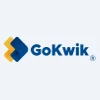Marketing automation removes the need for human intervention, which leads users to manage and arrange their campaigns more successfully. It can be used by businesses to handle repetitive tasks like email marketing, social media posting, and lead nurturing.
Businesses can now distribute personalized information at scale, monitor consumer interactions, and instantly analyze performance indicators with the help of marketing operations and automation.
In this dynamic environment, marketing automation is gradually becoming a critical demand for any organization in 2026. The needs of the clients are rising along with the market’s steady expansion. Only the newest and most sophisticated marketing automation systems can meet their expectations for more personalized results and prompt communication.
These tools help businesses to target their users by delivering effective messages based on their behavior and preferences. Moreover, automation also helps to optimize and allocate resources effectively. It helps to increase operational efficiency and add more value to the business growth.
This guide will be very helpful for businesses in 2026as it will explain various trends and technologies in marketing automation beneficial for them. They will get a deep insight into using automation tools to improve their marketing strategies, enhance customer engagement, and maximize business growth.
Whether you are looking to refine your current marketing automation software or exploring new solutions, this guide will give you the best knowledge to expand in the market effectively in this digital landscape.
Understanding Marketing Automation

What is marketing automation?
Marketing automation is a technological platform specifically created for marketing departments to handle their repetitive operations and multi-channel communication on multiple platforms. It majorly includes automation, lead scoring, email marketing, campaign management, analytics, etc.
How has the field of marketing automation changed over time?
Marketing automation was first introduced in the 1990s when basic technologies for bulk email and customer databases were established. Over the years, this technology upgraded and systems were integrated with CRM to offer more comprehensive features to businesses.
Now, the market faces higher advancements in AI and machine learning that enable enterprises to manage their multi-channel automation and data analysis on a real-time basis.
Let’s dig into the major components of this to understand precisely.
Email Marketing: Email marketing automation generates personalized emails or messages for distribution according to a set schedule. It enables businesses to respond to customer behaviour by sending the right message at the right time. It improves engagement and helps businesses to nurture their qualified lead through automated follow-ups and segmentations. This drives open and conversion rates.
Lead Scoring: The Lead Scoring assigns the numerical value to the leads based on their potential for conversion. This number is determined according to its readiness to buy. Sales representatives then priorities the highest valued lead to increase selling efficiency.
Customer Relationship Management (CRM): CRM functionalities in software help businesses to centralize and manage customer data effectively. This system enables businesses to track interaction, manage relationships, and streamline sales processes. This system provides a unified platform to get consolidated customer information. It helps the sales and marketing team to maintain records to understand their needs, ensuring higher engagement and driving conversions.
Analytics: Gaining detailed insight into campaign performance, customer behavior & preferences, and overall marketing efficacy is made possible through the use of analytics in marketing automation. It also does data analysis via performance dashboards and reports and helps businesses determine how successful their plan is. Additionally, it helps companies to detect patterns to make data-driven decisions and maximize the effectiveness of upcoming marketing trends.
Marketing Campaign Management: This function helps businesses automate the planning, execution, and monitoring of campaigns across multiple media channels. It means that companies can manage their marketing strategy all from one platform that helps them simplify campaign planning schedules and monitoring.
The Purpose and Benefits of Marketing Automation
Marketing automation intends to ease marketing operations by automating repetitive processes. This leads to increased business productivity driven by accuracy while enabling the scaling up of personalized content. Such tools facilitate automated communication which is consistent. They also drive better engagement and give data-informed insights for credible decisions.
What Are The Benefits Of Marketing Automation?

Some of the main advantages of implementing this in business include the following:
Enhanced Efficiency: Automating time-consuming tasks such as sending emails, posting on social media, and scoring leads, frees up room for a team to concentrate more on strategic activities.
Better Customization: With the help of automation, businesses can provide additional content or communication that is tailor-made according to individual customer behavior and preferences hence creating strong customer relationships.
Data-Driven Insights: One of the major benefits of marketing automation is valuable reporting and analytics which assist in measuring ROI, tracking performance as well as gaining insights into campaign effectiveness.
Consistent Communication: Effective communication between team members and customers is vital. By automating workflow, relevant information can be disseminated by team members right from initial contact to post-purchase follow-ups thus building trust among them and resulting in enhanced customer experience.
Improved Lead Management: Marketing Automation provides lead nurturing workflows along with lead scoring which helps prioritize sales efforts and engage leads more effectively thus increasing conversion chances.
Best Practices for Implementing Marketing Automation
Here are the best key practices to implement marketing automation.
Defining objectives and goals: Create specific goals including improving conversion rates, maximizing lead generation, or increasing customer retention, and align these goals with your common business objective.
Design customer journey: Understand customers’ journeys to map out their interactions to find out how automation can streamline processes.
Categorization: Segment your customers based on their behavior, interaction, demographic criteria, and other factors. This is how you can send personalized messages to each segment.
Enable Lead Scoring: To help the sales team focus on high-potential leads, incorporate lead scoring into marketing procedures.
Integration: Evaluate whether the marketing automation tools are integrating with the platforms and other current systems, such as ERP, CRM, and others.
Testing and Optimization: To assess and improve efforts, use A/B testing to gauge how well-automated campaigns are performing.
Monitoring and Measuring: Maintain constant surveillance on and track important performance indicators, such as ROI, engagement metrics, and conversion rates.
Training and Support: Ensure that the team is skilled and knowledgeable enough to manage marketing automation tools. Provide training sessions, resources, and ongoing support so that they can adopt the software effectively.
Common Challenges in Marketing Automation and How to Overcome Them
The following are the common challenges in marketing automation and their solutions.
Initial Setup Costs: The upfront cost of implementing these tools can be a major concern for small businesses. However, it can be overcome by making a detailed plan including potential costs and how to spread it effectively.
Learning Curve: Adopting new tools may include a steep learning curve for the team members. It can be resolved by providing comprehensive training sessions and resources on time.
Maintaining Data Quality: Maintaining data quality can be difficult due to inconsistent data. But, regulating data cleaning and validation processes can improve the quality of data.
Avoiding Over-Automation: Although automation is surely important for a quick and stable workflow, over-automation may not be a good option. It can be balanced with a personalized human touch in marketing automation.
The Future of Marketing Automation
The future of marketing automation is highly driven by various technological advancements including AI advancements, voice search integration, machine learning, Internet of Things (IoT), Augmented Reality (AR), and Virtual Reality (VR).
These latest technologies help businesses to adopt marketing automation with ease. These advancements help in providing sophisticated customer segmentation, adapting SEO strategies, customer journey mapping, and many more.
Additionally, with the advancement of technologies, the role of marketers is also transforming as they are becoming experts in automated campaigns. They are responsible for the interpretation of complex data, refining strategies, and alignment of objectives.
As marketing automation focuses on streamlining repetitive tasks, marketers can let their creativity come out. They develop creative content, strategies, and narratives.
Conclusion
Marketing automation is continuously becoming a significant need for businesses in 2026. It helps businesses to automate their marketing tasks including emails, lead nurturing, managing campaigns, etc. It eventually boosts the efficiency of the marketing department and increases the strategic growth of the business.
Moreover, implementing marketing automation in the business allows customization, data-driven insights, consistent communication, and several other benefits. However, there are still a few challenges in adopting marketing automation tools like budget and learning curve.
By using these tools strategically, businesses can meet customers’ expectations and drive conversions, ensuring a higher business market in the digital landscape.
FAQs
What is email automation?
Email automation is the process of using tools and technologies that automatically send, manage, and optimize email communication based on consumer interaction
What is the best marketing automation software?
The best marketing automation software totally depends on one's requirements. However, a few commonly used software in the market are:
1. Marketo (Adobe)
2. ActiveCampaign
3. Brevo
4. Drip
5. Keap
6. HubSpotWhat are examples of marketing automation?
The major examples of marketing automation are the following:
1. Email Drip Campaign
2. Lead Scoring
3. Personalized Recommendation
4. Social Media Automation
5. Lead Nurturing
6. CRM Integration
7. Sales and Marketing AlignmentIs marketing automation an AI?
There is no direct answer for this as marketing automation and AI are related but still differ from each other.
How does marketing automation work?
Marketing automation uses software to automate repetitive operations in the marketing department. It integrates customer data and creates personalized campaigns based on their interaction and preferences. It tracks and measures campaign performance to streamline marketing efforts.
What are the benefits of marketing automation?
Marketing automation offers numerous benefits to the marketing department. It offers increased efficiency, enhanced personalisation, improved lead management, consistent communication, higher ROI, and many more.
Who can use marketing automation?
Marketing automation can be used by businesses of any size, marketing teams, sales teams, e-commerce enterprises, B2B & B2C organizations, and many more.
Is marketing automation suitable for small businesses?
Yes, marketing automation is suitable for small businesses. It offers various benefits to smaller operations as well.
Jyoti Sharma is a skilled content writer with five years of experience in logistics, travel, IT, and education industry. Known for transforming complex concepts into clear, engaging content. She has been writing since 2019 and excels in making complex topics accessible and interesting. Whether it's for tech updates,... Read more





























